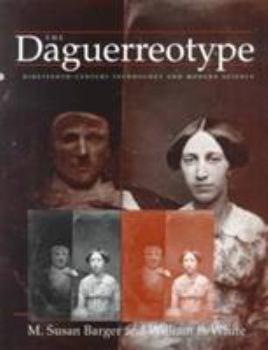The Daguerreotype: Nineteenth-Century Technology and Modern Science
Select Format
Select Condition 
Book Overview
How daguerreotypes were done
The discovery of light-sensitive chemicals in mid-nineteenth-century Europe carried large implications--for scientists, technicians, astronomers, and for the businesspeople who soon made family portraiture standard tabletop fare in middle-class homes. In The Daguerreotype: Nineteenth-Century Technology and Modern Science, M. Susan Barger and William B. White begin with a history of the process itself. Tracing the daguerreotype's origins and development, they proceed to discuss what researchers in this century have learned about the chemistry of the daguerreotype. They also address practical curatorial issues, describing how to restore and preserve the artifacts themselves. Richly illustrated, this survey of a fascinating and ubiquitous feature of mid-nineteenth-century life also provides a detailed technical study of the daguerreotype process.
The original motivation for our work was to devise better ways to preserve and care for daguerreotypes. As materials scientists, we knew that we needed to understand exactly what a daguerreotype is and how it is formed before we could attempt the problem of how best to care for these images . . . Our scientific work also gave us the opportunity to take a new look and interpretation of the scientific and technological literature on the daguerreotype and to reevaluate its technical history.--from the Preface to the 1999 edition





